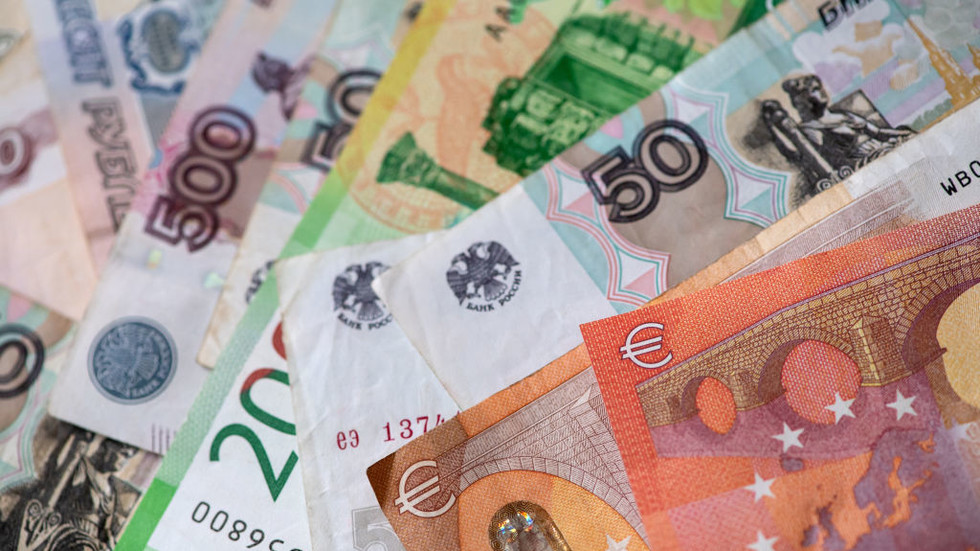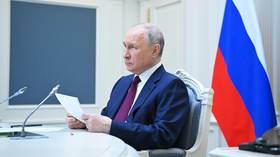
The central bank has said it sees no risks to Russia’s financial stability

© Sven Hoppe/picture alliance via Getty Images
The Russian ruble dropped over 3% against the euro on the Moscow Exchange during trading on Thursday, falling below the landmark rate of 100 to the single currency.
The ruble reached more than 102 to the euro during morning trade, according to exchange data, making it 3 rubles lower than at the close of trade on the previous day.
The Russian currency has also weakened against the dollar, trading at close to 94 rubles to the greenback. Rates against the euro and the dollar are at their lowest since March 2022.
The central bank could intervene in the currency market in the event of risks to national financial stability, although there are currently no such dangers, Bank of Russia governor Elvira Nabiullina said on Thursday.
The ruble depreciation is due to changes in the ratio between Russia’s imports and exports, she explained.
“We have seen that when the ruble rate weakens, various conspiracy theories appear suggesting that it is done on purpose to increase budget revenues. It is in fact the dynamics of foreign trade that largely determine the exchange rate,” Nabiullina told a financial congress in St. Petersburg.

She described the floating exchange rate as beneficial for the economy, helping it adapt to external shocks. The central bank has tools to smooth out short-term fluctuations of the ruble, Nabiullina added.
The currency has sharply lost ground since the short-lived rebellion by the Wagner private military company. The group, led by Evgeny Prigozhin, launched an insurrection against Russia’s military leadership on June 23-24.
The ruble has also been under pressure in recent weeks due to lower oil prices and Western sanctions, which limit foreign investment and restrict the currency supply from exporters.
For more stories on economy & finance visit RT’s business section




